8 people shaping PC gaming at the start of the decade
You may not have heard of them all, but these eight people are changing the way games are made, played, and talked about.
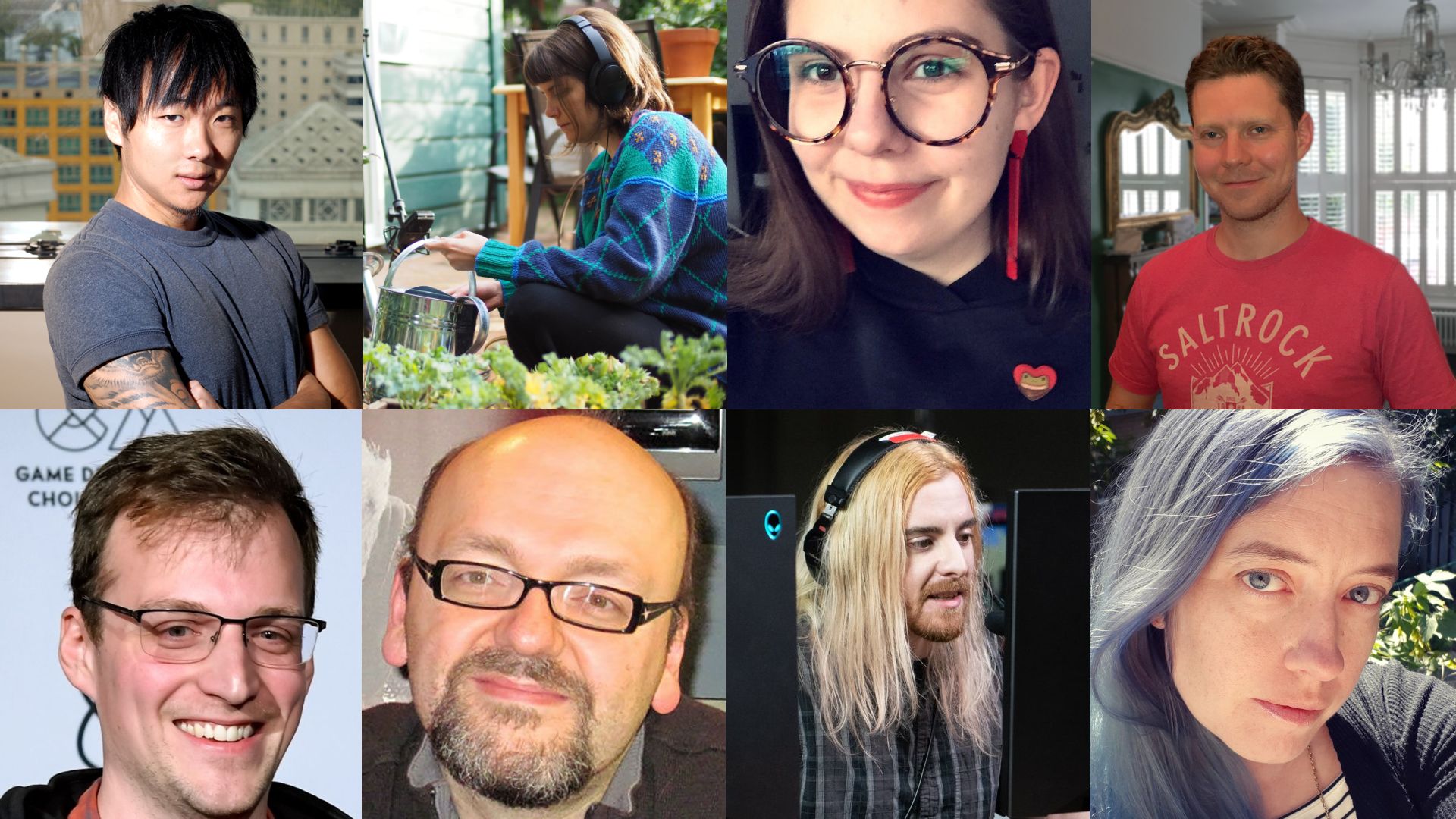
Nobody needs to be told that someone like Valve's Gabe Newell is important to PC gaming in 2020. The decisions made by company presidents, CEOs, and hardware manufacturers have effects that travel all the way down the very long ladder from their sky castles to where we sit at home, trying to remember our GeForce Experience passwords. But PC gaming is bigger than any company. It's an entire ecosystem—like the biosphere, except where approximately 80 percent of the Earth's biomass by weight is made up of plants, the PC gameosphere is 80 percent indie games you've never heard of.
The people on this list are not billionaire CEOs, and they're not creative directors or lead designers who've attained celebrity status. But they are shaping the present and future of PC gaming in significant ways. They're changing what we play, how it's made, and how it's talked about.
Em Halberstadt, sound designer at A Shell in the Pit
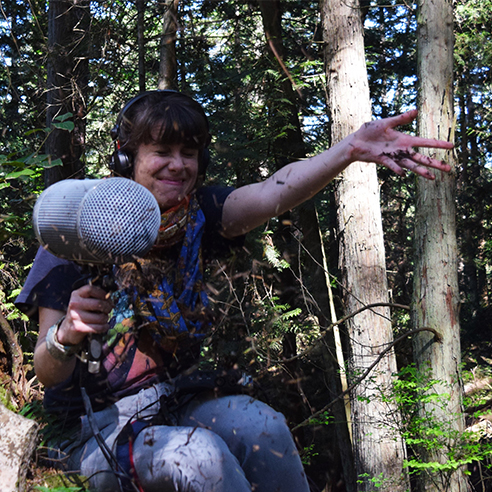
A Shell in the Pit is a studio that collaborates with indie developers on game audio. It began as the solo project of Gordon McGladdery, now studio director, who lent his audio skills to games like Rogue Legacy before deciding he needed a team.
"Em [Halberstadt] was actually our first hire," McGladdery says, "so she's contributed to almost every game we've worked on which may be too many to list. The most notable games on which she truly led SFX work and direction are Untitled Goose Game, Night in the Woods, and Wandersong."
For Untitled Goose Game the most important sound is of course the honk, which had to be equally obnoxious whether you're holding a harmonica or have your head in a bottle. "If I recall correctly," says McGladdery, "since it was the first thing we tackled, the honk was very carefully curated & layered from library sounds—it took a really long time to get dialed in because it had to be perfect!"
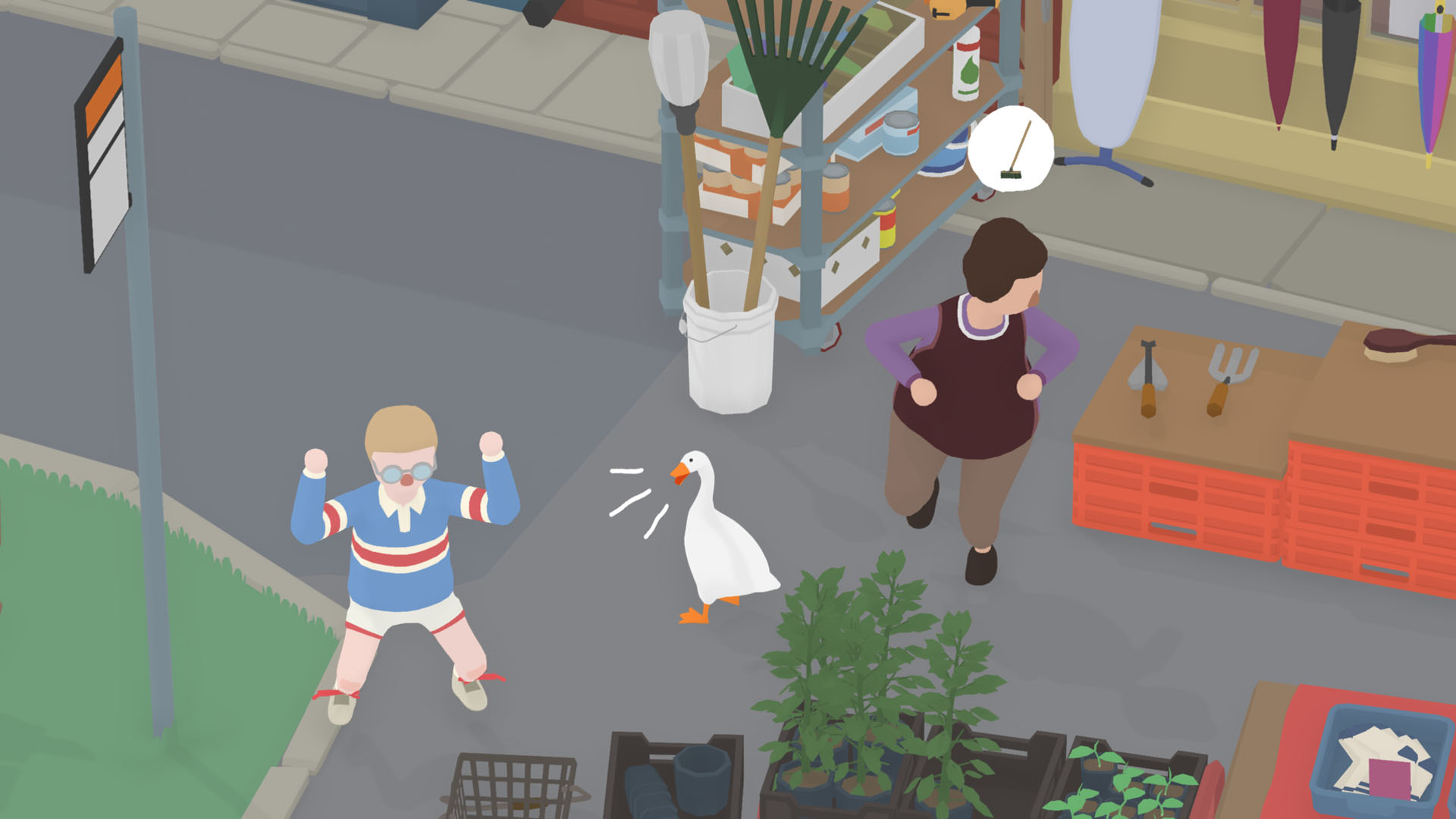
The other audio, the normal sounds of an English village, help ground the game's comic sensibility. Much of it was recorded in Halberstadt's backyard, sometimes with her baffled neighbours looking on. For the goose's footsteps she slapped a rubber glove against different surfaces, and each pick-uppable prop had to be recorded being dragged across varied surfaces too, as well as being thrown around. She really did record herself throwing a rake into a lake.
Halberstadt is about to be promoted to the role of Audio Director, McGladdery explains, "so that we can support more junior artists and get further reach with her vision. She is wrapping up on Ikenfell with Rachel & Millie, leading audio on Greg Lobanov's next game Chicory, does most of the design for Colin Northway's interactive VR Art Gallery The MOR (Em even made an exhibit for it!), is Audio Director on Awaceb's Project Caillou as well as on another very ambitious, long-term project we probably won't be able to announce for quite some time."
The biggest gaming news, reviews and hardware deals
Keep up to date with the most important stories and the best deals, as picked by the PC Gamer team.
Sound design is an underappreciated element of videogames, as every article about it is obliged to point out. But high-profile work like Halberstadt's is being recognized, with Untitled Goose Game recently being nominated for an IGF Award for best sound, and deservedly so.
Feng Zhu, concept artist
Feng Zhu's concept art has informed the look of plenty of well-known games, including Guild Wars, Prey (2006), Gears of War, Command & Conquer 3, Dead Space, and The Sims 3. That's a pretty diverse portfolio right there. But his influence is set to go further than that, as Zhu runs the FZD School of Design, and has taught a generation of concept artists who are following his footsteps. Artists like John Liew, who worked on The Witcher 3 and Cyberpunk 2077, Natasha Tan, who worked on Rise of the Tomb Raider and The Sims 4, Rowena Wang, who worked on Sekiro, and Dan Iorgelescu, who worked on Divinity: Original Sin 2 and Baldur's Gate 3.
Even those who aren't enrolled in his Singapore school can benefit from his expertise thanks to over a hundred episodes of YouTube tutorials called Design Cinema, which teach everything from sketching and cinematic lighting to building your own visual library.
Zach Barth, creative director of Zachtronics
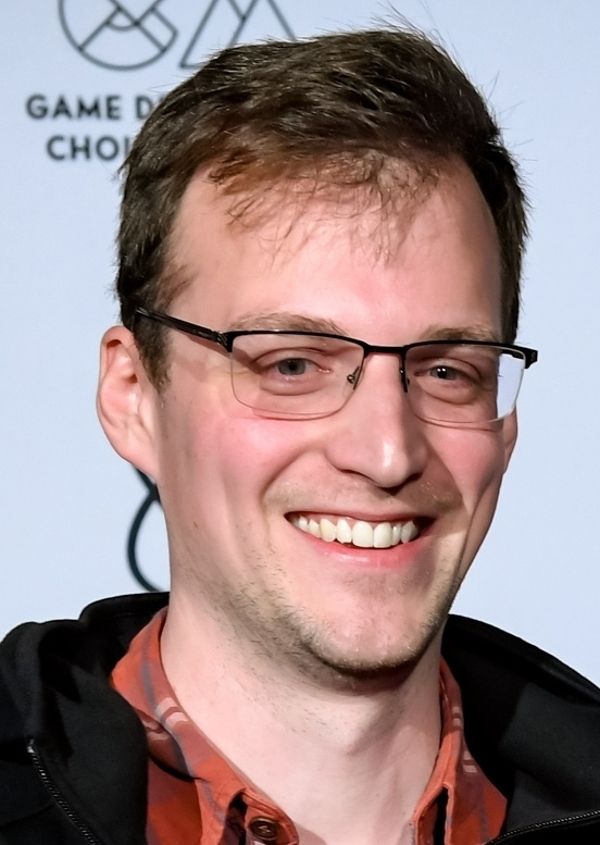
Zach Barth's early game Infiniminer is now remembered as "that game Notch ripped off to make Minecraft," but don't feel bad for Barth just because somebody else made $1.5 billion off his idea. He's continued making games, often critically acclaimed ones, and also he seems to be happy.
Among Barth's creations are a series of puzzle games dubbed Zach-likes by their fans. Whether they're about chemistry (Spacechem), alchemy (Opus Magnum), or assembly line construction (Infinifactory), they all require a kind of thinking that resembles computer programming. And in the case of TIS-100, Shenzhen I/O, and Exapunks, they straight-up are computer programming.
Kevin Simmons, designer/producer at Asymmetric Games (creator of West of Loathing), and a fan of Zach-likes himself, explains their appeal. "I think the common theme through all of them is the way you are presented with a problem and invited to make free-form solutions within constrained spaces," he says. "You're given a small set of tools, a medium-sized area to work, and a goal, and then just set free—it's up to you to figure out how you want to get there."
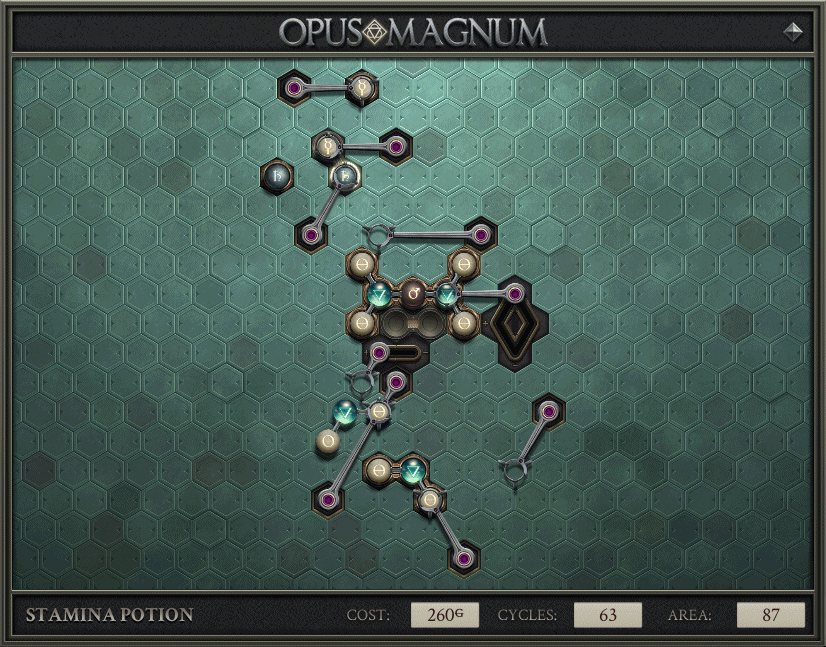
Zach-like games don't end when you solve the puzzles. They have leaderboards, scoring puzzles across multiple metrics, meaning that it's worth going back to the earlier levels with tricks you discover later to refine your solutions. As Simmons says, something unique to Zach-likes is how easy it is to "lose hours trying to find a more elegant solution to a problem that you have already solved!"
Last year Zachtronics published two games. MOLEK-SYNTEZ is a classic Zach-like in which the aim is "to create small molecules with various pharmacological effects from the comfort of your small Romanian apartment." The other was a visual novel about an AI counseling program called Eliza. Though at first Eliza seems removed from Barth's other projects, his games often have plots running through them as a motivation to push through once the puzzles get hard, and they're better written than most (thanks to his frequent collaborator Matthew Burns).
"Something that I love about most Zachtronics puzzle games is that they have really carefully considered and well-developed stories as a setting to exist within," says Simmons. "There are reasons for the goals you're presented with, and implied stakes for failure or success. The narrative never gets in the way, but provides a texture that makes everything else feel more alive."
Barth's games, whether in the subgenre he's marked out for his own, or the occasional steps he takes outside those bounds, are always standouts.
Badger, Terraria streamer and speedrunner
One of the great successes of the last decade on PC was Terraria, which, since 2011, has outgrown its original dev team, outlived a sequel, and remains omnipresent on Steam's most-played games list. Terraria's developers pay a lot of attention to their community, updating the game to take into account the ways people play it. That includes nerfing anything prominent Terraria streamer Badger (aka William Bishop) relies on. Badger's importance to Terraria is the reason he was put on stage at AGDQ this year to speedrun the nine-year-old game, and his personality is the reason the run was so watchable.
After setting himself the challenge to get to the Moon Lord boss in one hour, Badger started strong but had some bad luck later on. Eventually he failed to defeat three bosses before sun-up, which meant he didn't have the Hallowed Pickaxe later on when he needed it (Terraria is complicated). He stayed positive, however, and the audience loved him for it, cheering him on through further disasters. The donations rolled in, including several $500 and even $1,000 donations, which he was visibly flabbergasted by. In the end the producers had to call time and he never did get to fight the Moon Lord, making it technically a failed run. But during that hour and change he helped raise over $30,000 for charity, which is more important than any boss fight.
Badger says he'll be back with more Terraria speedruns and new tactics, and if they work the game's developers will be sure to nerf those too. It's the circle of life.
David Gaider, co-founder and creative director of Summerfall Studios
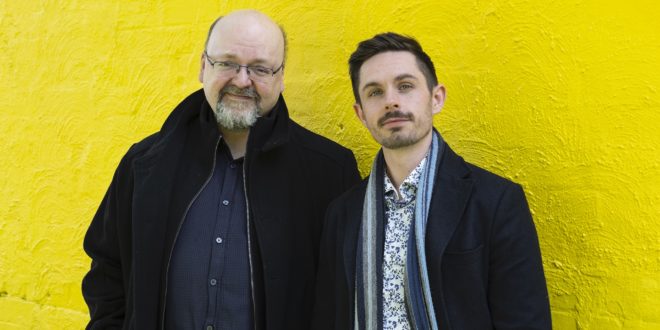
David Gaider was a writer and designer at BioWare from 1999 through to 2016, working on Baldur's Gate 2, Neverwinter Nights, Knights of the Old Republic, and all three Dragon Age games. (He also wrote several Dragon Age novels and comics.) After that he was creative director of Beamdog for a couple of years before leaving to found Summerfall Studios, alongside managing director Liam Esler.
Summerfall's first project is Chorus, a videogame musical, complete with branching musical numbers. As Esler explains, "There haven't been many attempts to explore the medium of the musical in videogames, short of smaller indie titles like Dominique Pamplemousse and the occasional song in larger games, so we're excited to see how we can make a musical truly interactive."
It may not seem like an obvious step—from fantasy RPGs to an interactive musical—but Esler points out that Chorus contains a lot of what Gaider brought to games like Dragon Age. "So much of Chorus is directly influenced by David's past work," he says, "from deep and fascinating character design through to complex relationships and a lot of careful worldbuilding. The interactive musical numbers build upon David's work with branching dialog, and of course the game will have plenty of that as well. Plus, of course, romance and big emotional story beats!"
Summerfall plan to continue making games that share these elements, which is good news for those who loved the games BioWare made back when they were focused on dialogue and relationships.
"Right now we're focused on making Chorus the best game it can be," Esler says, "but long-term we want to continue building character-focused games with an emphasis on story. We want to keep pushing the limits beyond where we're comfortable, while making games for those who don't necessarily want to focus on combat and deep strategy."
Sam Barlow, director and writer

Sam Barlow's late '90s experiments with interactive fiction—the most fondly remembered of which is IF Award winner Aisle, a one-move game set in a supermarket—don't immediately suggest a future in FMV. But what those early text-based games have in common with his later full-video games, Her Story, #WarGames, and Telling Lies, is a focus on uncovering a story through lateral thinking.
In Aisle you control an ordinary man doing his grocery shopping, wistfully staring at the gnocchi. You have one chance to give him a command before Aisle resets and you're playing a parallel version of the same character, similar but different, whose background and personality will be defined by the next action you choose.
In Her Story there's no suggestion of parallel universes, just a woman sitting at a police database choosing what to search for. Each search term brings up more video evidence, suggesting what to type next—in a way it is like Aisle, all about building up an understanding of events that guides you to the next words you need to type.
It's a different approach to FMV and one that helped revitalize the genre. Without it there'd be no Contradiction, or forthcoming games like "dystopian newsroom simulator" Not for Broadcast and rotoscoped road trip Road to Nowhere. As Barlow continues iterating on his formula, so too will other developers.
Tanya X. Short, captain of Kitfox Games

Kitfox Games are a Montreal indie studio responsible for games like The Shrouded Isle, a management sim about running a Lovecraftian cult, and the forthcoming Boyfriend Dungeon. Tanya X. Short is the studio's co-founder and "captain."
As Kitfox communications director Victoria Tran explains, the reason for that title goes back to their debut game, Shattered Planet, which gave players a spaceship base. "The team decided to give each other pseudo-nautical titles to fit around that theme," she says, "which is how Tanya, as the leader, got the title 'Captain'. As our co-founder Xin Ran Liu puts it, while 'President' or 'CEO' would be more appropriate for Tanya's actual corporate position, it didn't feel like it actually encompassed her fully hands-on role."
Kitfox emphasizes the importance of a healthy work culture, of sensible hours and an absence of crunch. As Tran explains, "Tanya doesn't just implement policies and leave them there. She'll actively promote it, and be one of the first people to notice when someone seems exhausted, stressed, or sick and ask them if they need to go home or take a vacation."
Short's influence is felt not just on the studio culture at Kitfox, but in the games they make. Boyfriend Dungeon is both an action-RPG and a dating sim, where the dates are with magical weapons that transform into romanceable hotties between dungeon crawls. Imagine if that BioWare NPC you had a thing for was also a +3 sword.
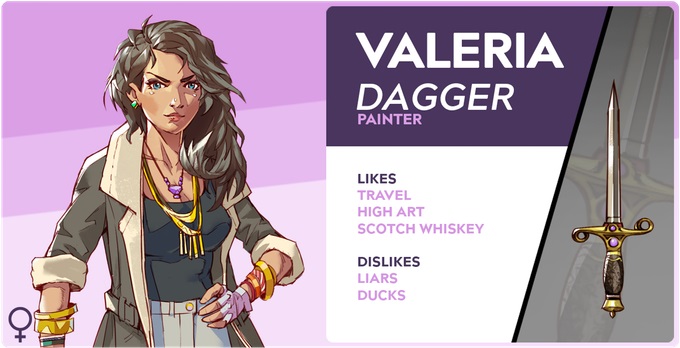
Tran says making a game that serves two genres like this can be difficult. "Varied combat styles and ever-changing dungeons is challenging enough, but what sets it apart is that Tanya has lead the team to make it a cozy, warm experience. She writes a lot of the dates in the game, of which people who've played it have said they felt an actual connection with the characters, rather than just as stereotypes of some trope."
Tran summarizes the studio's ethos like this: "In short, if Kitfox were to have any effect on the games industry, it would be this: that we should put people in front of projects, always." And Short's vital to that. She may have been dubbed the Captain as a gag, but it stuck because it proved apt. As Tran says, "Tanya's there steering us in the right path, battering the storms for us, and making sure we as a crew are happy and working together."
Grace Bruxner, creative director of Worm Club

On itch.io, where Grace Bruxner's early free games like Alien Caseno and The Fish Market were distributed, her variety of short, low-interaction experiments are not out of the ordinary. But the games in her Frog Detective series, The Haunted Island and The Invisible Wizard, are available on Steam for actual money. That meant putting them in front of an audience who aren't as familiar with the idea that a game you can finish in less than an hour is still valuable—which is why the words "this is a short game!" appear in wobbling letters on both Steam pages.
The Frog Detective series resembles adventure games, in that it's about talking to weird characters who want things for ridiculous reasons, building up an inventory of stuff, and then distributing it. The games boil that format down to its most basic elements, removing roadblock puzzling and aiming for simplicity.
Her games aren't interested in mechanical innovation—they do not feature permadeath or deckbuilding or "RPG elements" or a way to rewind time. They are just about talking to cute animal people until you unravel a ridiculous mystery. Along the way you watch wonderfully animated bugs and other creatures amble about, laugh at some goofy dialogue, and appreciate the sight of a reindeer chilling in a hot tub. Bruxner's games do not outstay their welcome, do not come back for a fifth encore, do not have "endgames." They do what they do and then let you get on with your life, and that's a a philosophy more videogames should follow.

Jody's first computer was a Commodore 64, so he remembers having to use a code wheel to play Pool of Radiance. A former music journalist who interviewed everyone from Giorgio Moroder to Trent Reznor, Jody also co-hosted Australia's first radio show about videogames, Zed Games. He's written for Rock Paper Shotgun, The Big Issue, GamesRadar, Zam, Glixel, Five Out of Ten Magazine, and Playboy.com, whose cheques with the bunny logo made for fun conversations at the bank. Jody's first article for PC Gamer was about the audio of Alien Isolation, published in 2015, and since then he's written about why Silent Hill belongs on PC, why Recettear: An Item Shop's Tale is the best fantasy shopkeeper tycoon game, and how weird Lost Ark can get. Jody edited PC Gamer Indie from 2017 to 2018, and he eventually lived up to his promise to play every Warhammer videogame.

